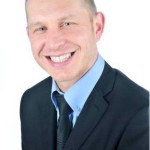Our senses connect us to the outside world. They help us perceive and structure our surroundings. Hearing is probably our most important sense as it gives us access to spoken language, necessary for the development of speech, language, and communication in general.
Development of speech and language in children is a continuous process, in which the first years of life are of the greatest importance. Normal function of the auditory sensory organs and the central auditory pathways is a prerequisite for the normal development of speech and language in children. For a number of children the process of developing speech and language is hampered and their ability to communicate effectively does not develop in a straight forward fashion.
What is Central Auditory Processing?
It’s the auditory mechanism and processes responsible for:
- Sound localization and lateralization
- Auditory discrimination and pattern recognition
- Temporal aspect of audition
- Auditory performance with competing or degraded signals
Children with Central Auditory Processing Disorder (CAPD) display a number of behaviors similar to the symptoms associated with sensorineural hearing loss. For example, they may complain that they find it difficult to hear when the classroom is noisy.
These behaviors may become apparent in the early school years, or at a later stage of the child’s life, due to changes in the acoustic environment, or to increased academic demands.
So what specific auditory abilities are affected if a child has CAPD? The American Speech Language Hearing Association (ASHA) defines CAPD as a deficit in one or more of a number of skills, including difficulties knowing where a sound is coming from (sound localization); the ability to detect changes in the duration of, and time intervals between auditory stimuli (temporal processing); and the ability to detect spectral variations in auditory stimuli (particularly those that differentiate sounds according to formant transitions between phonemes).
Causes of CAPD
We don’t know exactly what causes CAPD, but the neural pathways of the central auditory nervous system are involved in some way. Children who have experienced repeated episodes of otitis media (glue ear) may be particularly susceptible to CAPD, perhaps due to the fact that their hearing levels fluctuate during periods of infection, affecting normal exposure to sound and compromising development of the auditory pathways. However, many children with CAPD have never had glue ear. CAPD affects about two to five percent of children and there are twice as many boys than girls with CAPD.
Diagnosis
Routine audiological tests will not diagnose CAPD and pure tone audiometry results are typically normal for children with CAPD. At NEWWAVE we are using a special test designed to diagnose CAPD. It’s called the Listening in Spatialized Noise – Sentences Test (LiSN-S). This test assesses auditory skills in children who may be having difficulty listening to and following speech, for example, in the classroom.
LiSN-S evaluates a child’s hearing comprehension in four different conditions. A number of sentences are presented under headphones, initially at 62 dB SPL, in the presence of two distracter stories presented at fixed intensity of 55 dB SPL. The distracter stories vary in both their position in space (coming from either directly in front of the listener, or at either side of the listener); and in the vocal quality the speakers. The listener’s task is to repeat each sentence heard. The intensity level of the target sentences is adjusted to find the level at which the listener is getting 50 percent of word correct in each sentence which is called “speech reception threshold” (SRT).
Based on the test results we can determine if there are any audiological indications of and recommend treatment . The minimum age for testing is 6 years old and the child must be fluent in English.
For more information, please contact:
BEIJING
NEWWAVE at LIH Olivia’s Place Beijing
3 Jiu Xian Qiao Road, Building 6-1, Second Floor, Chaoyang District, Beijing, China 100016 Office: (010) 6461-6283
Email: china@newwave-hearing.com
SHANGHAI
NEWWAVE
9 Joy Tower, Level 15, Room C, No.9 Zhenning Rd, Shanghai Office: (86) 021-52388137
Email: china@newwave-hearing.com





